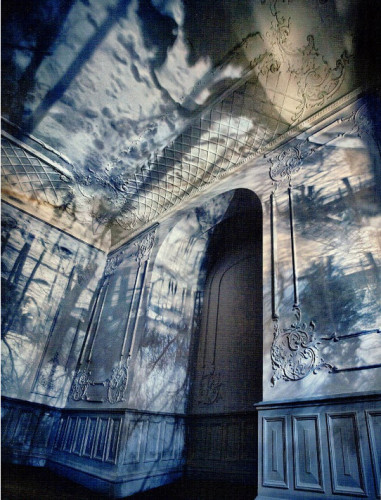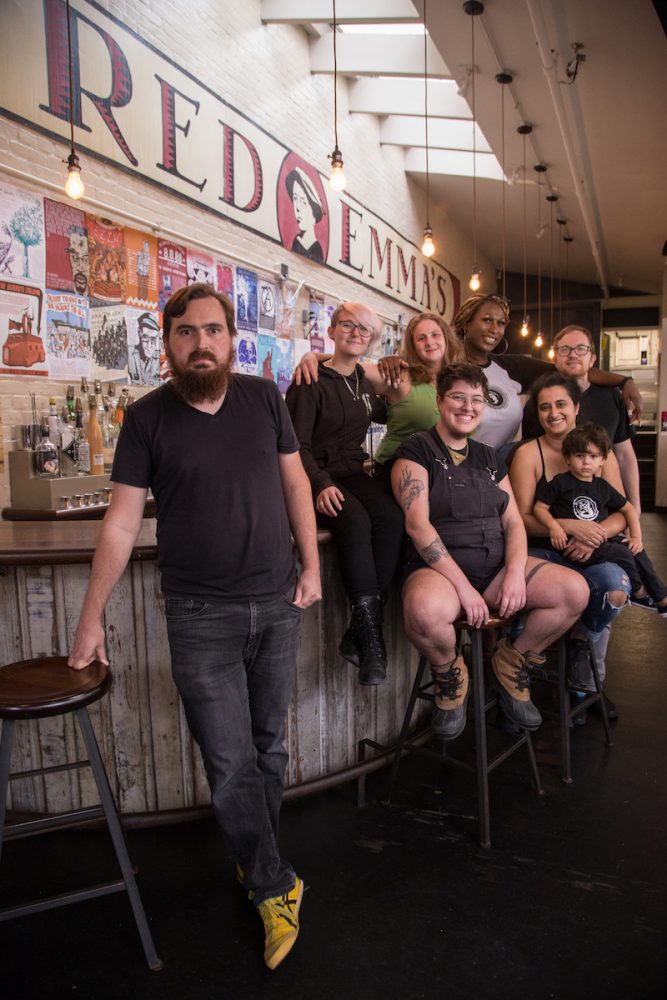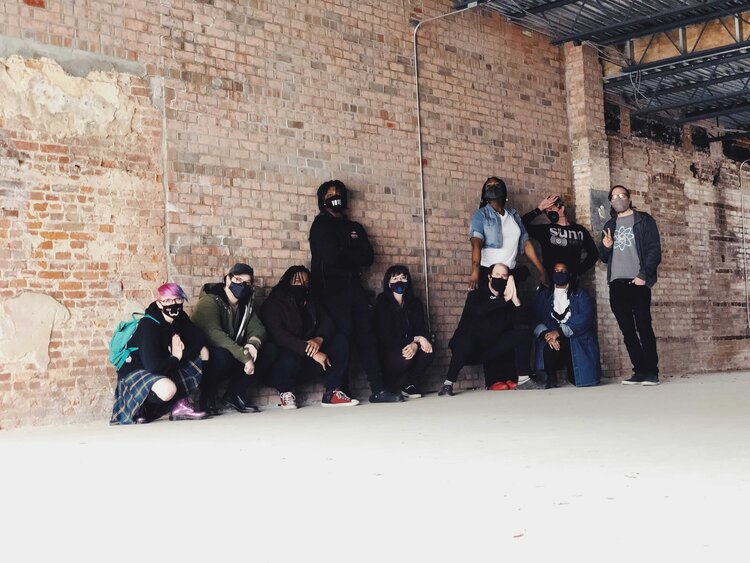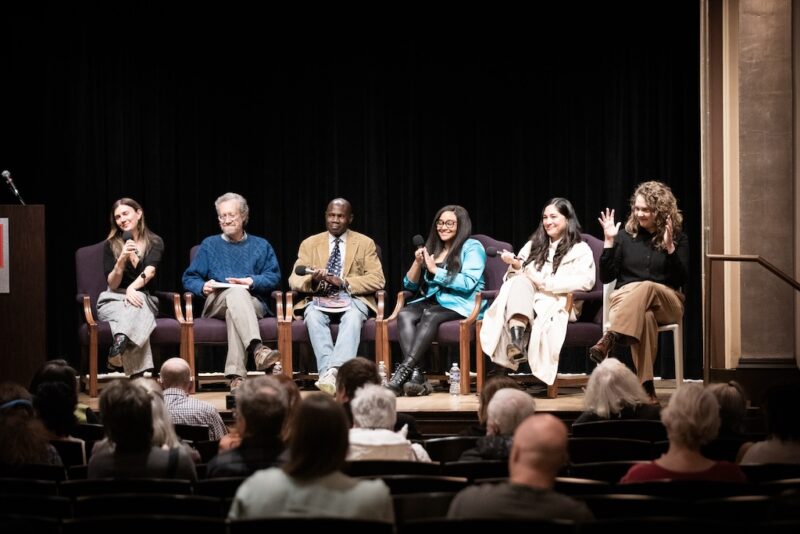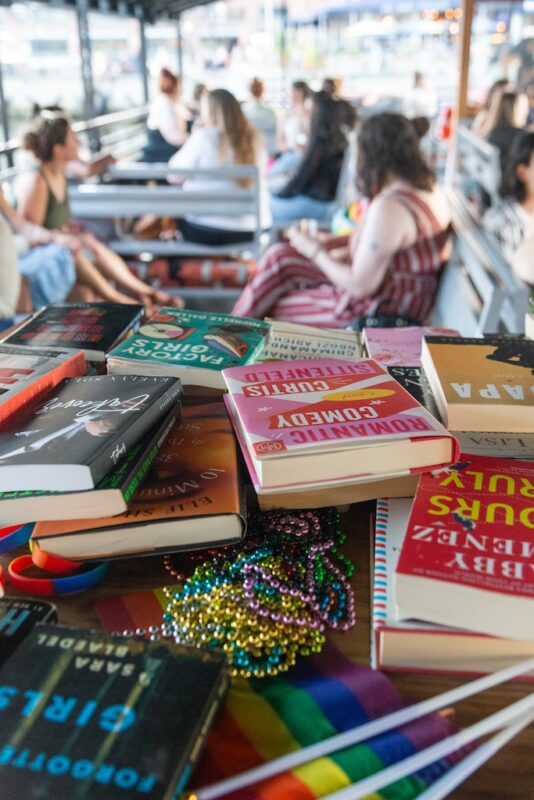Editor’s Note: Last week, Red Emma’s announced that the cooperative has purchased two buildings that will become their “forever home” in Waverly. They plan to combine and renovate the properties—a long-abandoned former antique store at 415 E. 32nd Street and a storefront at 3128 Greenmount Avenue—into a multi-level coffeehouse, bookstore, and social center.
Their Mount Vernon location is still open for takeout, delivery, outdoor dining, and bookstore browsing. According to the Baltimore Business Journal, Red Emma’s aims to open the new space in phases (with the first phase debuting at the end of 2021), and expects the whole project to take somewhere from 18 to 24 months. About the Mount Vernon location, co-founder Kate Khatib told the BBJ that while they appreciate their current digs (to which they moved in 2018), “it’s really designed and geared for being a high-volume restaurant. . . It’s designed to be transactional; your goal is to move people through as quickly as possible so you can turn the tables. Our intention has always been to be a community space that encourages people to stay and linger and meet new friends and make connections, and we felt like we just weren’t able to do that in the current location.”
Joining neighborhood businesses Normals Books & Records, Urban Reads Bookstore, Pete’s Grille, Local Color Flowers, My Mama’s Vegan, and Peabody Heights Brewery, among others, Red Emma’s worker-owners stated they’re excited “to work together [to] reimagine a Greenmount avenue commercial district that is community-focused and meeting the needs of the neighborhoods that border it.”
In light of this news, we decided to share Brandon Soderberg’s article about Red Emma’s, which appeared in BmoreArt Issue 08: Archive in the fall of 2019.
